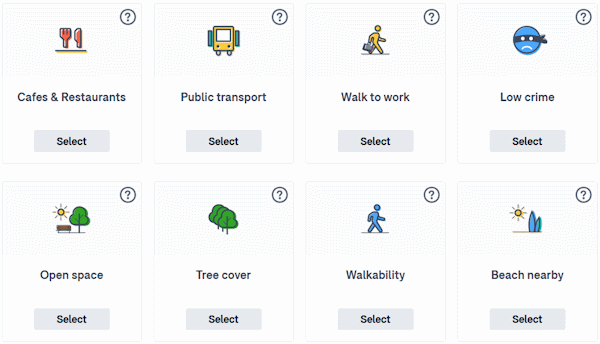Where we live determines a lot about our life.
So today I'm going to share a resource that can help you decide where might be a good place to live.
It started with an article ranking Brisbane suburbs from 1 to 260.
That ranking was based on a set of 17 factors. Here are some of them.
But all 17 may not be relevant for you. And some might matter more than others.
So they developed a tool where you can rank the 5 factors most important to you and it will give you a personalised list of Brisbane suburbs that would be the best for you - based on those factors. There are also Sydney and Melbourne versions.
On the results page, there's also a map that colour-codes each suburb by star rating, for each factor. For instance here's the map for public transport. Five-star suburbs are in blue.
When you click on a suburb, you get the name and the star rating of that suburb - for whichever factor you select.
I find this to be so enlightening. I choose not to own a car. Some people find this shocking, tell me it's not possible, and complain that public transport is terrible. That surprises me, but when it turns out they live in a 2-star suburb (for public transport) it kind of makes sense.
So when we are choosing our next place to live, we can choose the kind of area we like. It can provide the kind of lifestyle we want - and we could save a lot of commuting time and money by selecting an area that has the things we need. You could reduce the number of cars you need to own and maintain.
PS. If walkability is something you're interested in, you may also like to check out walkscore.com - where you can get a walkability score for your suburb, street and even street number.





Comments
Post a Comment